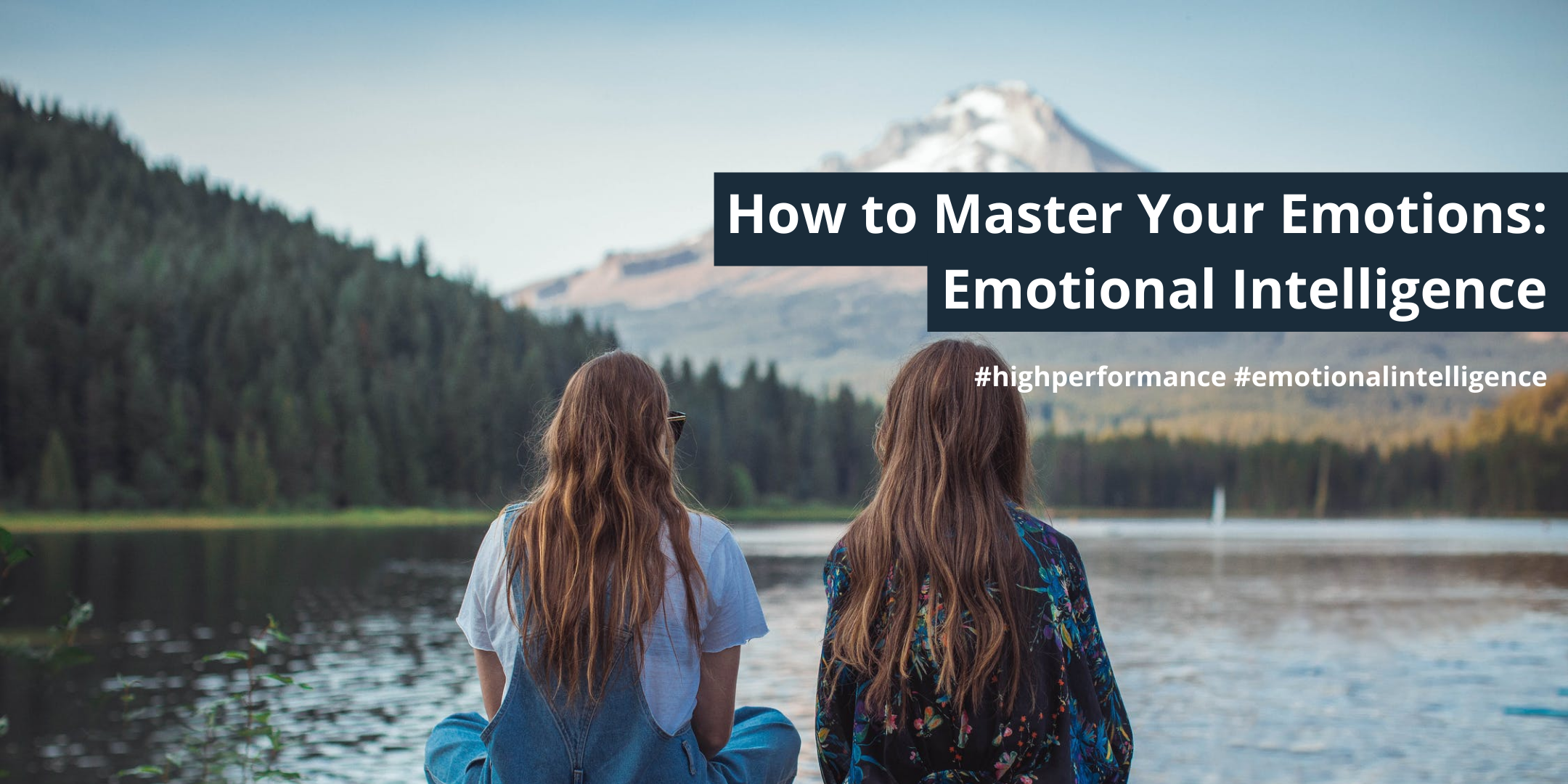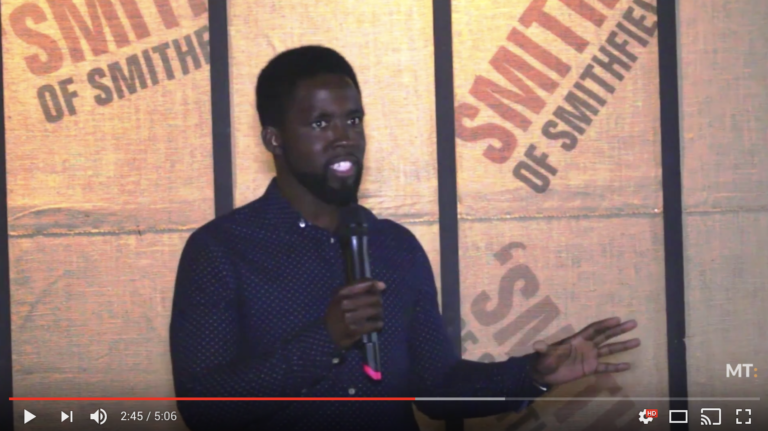How to master your emotions | Emotional Intelligence
Feeling like you’re a whole heap of emotions? Getting distracted by other people’s successes online? Well in today’s article, I’m going to be talking about the art of mastering your emotions in the 21st century. I’m sure you know what emotional intelligence, a term coined initially Daniel H Coleman. He wrote a book on emotional intelligence, so if you are geeky enough to want to read it you can find it here.
During many of my coaching sessions, emotional intelligence has been at the heart of some challenges they have faced in their life. I’m going to aim to explain what emotional intelligence is and how you can use it to better master your emotions.
Let’s start with definitions
The definition for emotional intelligence is:
the capacity to be aware of, control, and express one’s emotions, and to handle interpersonal relationships judiciously and empathetically – Oxford Dictionary
In other words, it’s being aware of your emotions and knowing how to respond in different situations, but also to other people as well. Emotional intelligence is broken down into two main parts:
- Intrapersonal
- Interpersonal
Let’s break those down even more.
Intrapersonal
When looking at this area we focus on self-awareness and self-management.
Self-awareness
Self awareness can be developed if you do certain practices that enable you to understand exactly what’s happening within your surroundings, or at least get to a stage of being close to observing things from an objective standpoint. What do I mean by this? Well, here are some practices to help you improve your self-awareness:
- Guided Meditation
- Meditative body scans
- Daily or weekly reflections
- Accessing a coach or a mentor
- Being accountable to someone else
These activities allow you to recognise certain things that you may not have recognised before..
It always starts with self-awareness, because if you can’t truly see what’s in front of you due to a rose-tinted lens, it’s going to be very difficult for you to make changes for the better. In order for you to assume control, you need to stick to practices such as the ones I’ve just stated to help facilitate this. Being present is key.
Self-management
The second thing is self-management. When you start to get a baseline based on your observable environment, then you start to be in a position of power because you start making choices and decisions based on that information.
In other words, if something bad happens in your life, then if you’ve practised self-awareness, and you can get to a stage of making changes. You can be a bit more adaptable, and you can be a bit more resilient. You can be in a position where your stimulus does not heavily distort you emotional state and therefore your decisions. In psychology, this is known as emotional agility. In essence, it’s really being clear about your values and your principles and knowing how to act in accordance to what is important to you. This helps you stay more in emotional control.
And so that’s what intrapersonal means when we break it down into self-awareness and self-management. And obviously, if you have these skills, you’re in a position of power because many people suffer from not being able to manage their emotions effectively.
Interpersonal
The second part of emotional intelligence is the interpersonal. Again, this is broken down into two different bits
- social awareness
- relationship management
This is more about people and how you interact with them. The sociological term for this school of thought is known as social intelligence.
Social Awareness
This focuses on knowing how to respond to different people.
Empathy
This is knowing how and when to say things that are appropriate in order to make that person feel like you understand them and talking to them in such a way where there is psychological safety. Personally, I feel like there are many people who don’t show the right level of empathy when people are suffering from situations that are making them feel down. As everyday leaders we can all definitely do better.
Service
This is enabling an individual to open up and be vulnerable with you, which creates more trust. If you can develop that by virtue of those characteristics and those actions, you are improving your relationship. In the coaching world, they say that if you allow more trust and more rapport to happen in one’s life, then you’re moving more towards a transformational relationship or direction, which means you’re going to strengthen that relationship rather than just having a transactional one; the sort that you sometime see or pathetic WhatsApp conversations.
Deep listening
Another thing that’s really important, adopted from Carl Rogers is using deep listening. This is not the same as active listening because active listening can sometimes give the perception of deep listening – but nothing is actually being registered in the same way. With deep listening you almost feel like you are experiencing the uni-mind affect; in the moment you are one.
Questions are the answer
In addition effective and powerful questions supplement deep listening. Questions that invoke a really heartfelt response. Questions that enable the person to open up and express themselves in such a way where they feel like they can trust you.
These are some things to think about when it comes down to social awareness.
Relationship Management
The next bit of interpersonal skills is relationship management. And this comes down to things like:
- Authentic leadership
- Collaboration
- Change agency
- Facilitation
All these different things help you maintain relationships with different people. There are situations where with friends, we may say “Oh it’s their turn to contact me.” out of principle. You may be fed up that they are not pushing their end of the relationship bargain, whatever that is based on. But in the same instance, are you letting situations define the characteristics that you want to uphold? When it comes to relationship management, you have to think to yourself, what is it that I’m trying to achieve here? What is it I’m trying to do? At the heart this, it’s important to be aware that it comes down to self-awareness. It comes down to being able to observe things and realize how you respond in different situations.
I’ve Victor Frankl before and he says:
“Between stimulus and response there is a space. In that space is our power to choose our response. In our response lies our growth and our freedom”
– Viktor Frankl, Man’s Search for Meaning
This means that we need to be in that “space” to create those moments of awareness so that we can respond how we seem best fit. Imagine that you had a super power of moving extremely fast or slowing down time; this is the effect that self-awareness has. It stops you from responding erratically and irrationally in order for you to make better decisions.
Conclusion
Hopefully you can see how you can master your emotions, it’s by mastering your emotional intelligence. If you want to learn more about the biology, psychology and sociology of emotional intelligence, you can check out the book here.
Self-awareness comes by practising presence. Social Intelligence can improve by understanding the human condition and human behaviour. I usually say, watch what people do rather than what they say, because if you can understand the psychology behind that, then you become a better communicator. It’s about understanding how you can create win-win situations.
As always, if you would like coaching on how to improve your emotional intelligence or leadership skills, feel free to book a breakthrough coaching session here.
The video associated to this video can be found below:








One Comment
Comments are closed.